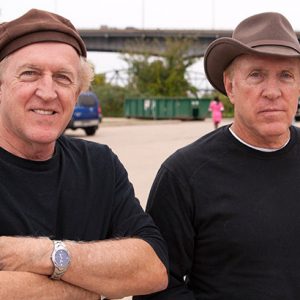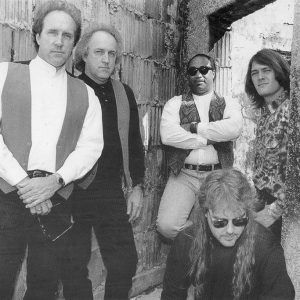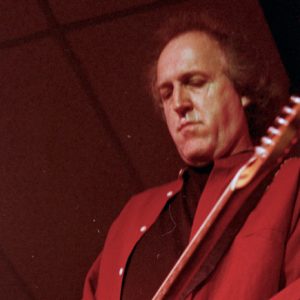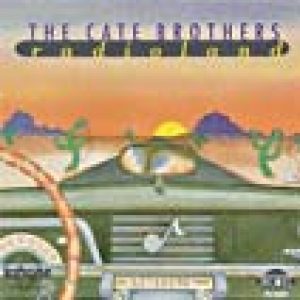calsfoundation@cals.org
Cate Brothers Band
The Cate Brothers, identical twins Earl and Ernie (born Ernest), once exemplified the country-style rock and roll that flourished in the Ozark Mountains area of northwestern Arkansas, before adding rhythm and blues (R&B), soul, and funk to their approach in a distinctly unpretentious way.
The Cates were born in Fayetteville (Washington County) in 1942 and grew up in Springdale (Washington and Benton counties). Although not born to a musical family, the Cates taught themselves how to play their instruments and were heavily influenced during their teenage years by Ronnie Hawkins, whose ever-changing band, the Hawks, was at that time composed of the personnel who eventually became famous as Bob Dylan’s backup ensemble, the Band: pianist Richard Manuel, keyboardist Garth Hudson, drummer Levon Helm, and guitarist Robbie Robertson. The northwestern Arkansas musical enclave was a diverse one, however, and the Cates heard not only renowned touring rock musicians but also worked with such local stars as vocalist Ken Owens while competing with Hawkins and Tolleson for a tough, knowledgeable regional audience. The Cates’ band was originally called the Del-Reys, and they sang Everly Brothers–style harmonies when they were young, before they developed their own vocal personae. Earl plays the guitar, while Ernie plays keyboard.
The Cates have remained close to the northwestern Arkansas clubs and festival activities, which revolve around the University of Arkansas (UA) in Fayetteville and have expanded to accommodate the booming regional commercial developments related to the growth of Walmart, Tyson Foods, and J. B. Hunt. But the Cates are also true to their musical roots in that theirs is a “country soul” unit, and they are masters of a kind of rhythmic eclecticism that is native to the cultural territory from which it emerged, bounded generationally by Bob Wills’s western swing and the Band’s blend of hillbilly simplicity and blues depth.
In 1970s, the Cates released four major-label albums (three on the Asylum label—a powerful force in rock music at the time—and one on Atlantic): Cate Bros. (1975), and In One Eye and Out the Other (1976), Cate Bros. Band (1977), and Fire on the Tracks (1979). The group, which toured around the world, earned critical acclaim for its distinctive sound and an solid reputation for expert musicianship. Cate Bros. and In One Eye and Out the Other were produced by legendary Memphis, Tennessee, guitarist Steve Cropper, a member of Booker T. & the MG’s and a mainstay of the celebrated Stax label throughout the company’s 1960s heyday. Fire on the Tracks was produced by Tom Dowd, a renowned longtime producer and engineer for Atlantic Records.
During the 1970s and 1980s, the Cates toured nationally and internationally with the likes of Heart, Fleetwood Mac, and Queen. The Cates have earned a devoted following of their own and have continued to release albums, including Radioland (1995), Struck a Vein (1997), Cate Brothers Band Live (1999), and Play by the Rules (2004). These later albums have been described as hybrids of blues, rock, soul, and country.
Though they have never achieved the kind of far-flung success that was eventually accorded the Band (the Cates’ most famous recording is probably “Union Man” from the 1975 Cate Bros. album), the Cates remain a well-respected band among their peers in the music world and have carried their style of classic rock into the twenty-first century.
For additional information:
Hawkins, Ronnie, and Peter Goddard. Ronnie Hawkins: Last of the Good Ol’ Boys. Toronto: Stoddart, 1989.
Helm, Levon, and Stephen Davis. This Wheel’s on Fire: Levon Helm and the Story of the Band. Chicago: Chicago Review Press, 2000.
Jim Kelton
University of Arkansas, Fayetteville








Simply the best pure band that America has ever produced.